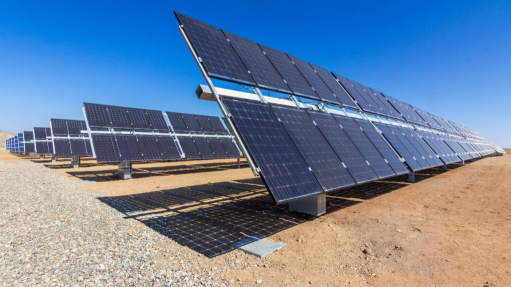DFFE publishes latest biological invasions report
The latest ‘National Status of Biological Invasions and their Management in South Africa’ report paints a sobering picture of the multitude of alien species that have taken root in – and threaten – South Africa’s biodiversity ecosystem, Forestry, Fisheries and the Environment Minister Barbara Creecy said on Friday.
Speaking at the launch of the third edition of the report, she said that stakeholders need to embrace the findings of the report and to unite to resolve the challenges of biological invasions, which pose significant risks to South Africa’s water security, threaten sustainable agriculture and exacerbate wildfires, besides others.
The report is published every three years by the Department of Forestry, Fisheries and the Environment (DFFE), in collaboration with the South African National Biodiversity Institute (Sanbi) and the Department of Science and Innovation’s National Research Foundation’s Centre of Excellence for Invasion Biology, to monitor and assess invasive species in South Africa, and outline control and management programmes initiated to manage invasive species.
The research shows that new alien species continue to arrive, through trade and travel, into South Africa every year, and over the last decade, from 2013 to 2022, 32 new alien invasive species were illegally or accidentally introduced, equating to an average of three new species a year.
“They wreak havoc on our fragile ecosystems,” she pointed out, noting that the invasive species alter natural habitats, out-compete indigenous species and disrupt essential ecological processes.
“They have far-reaching consequences for our economy, for agriculture, for water sources and for public health. I think what we often underestimate is the risk that the species provide for human health, because there are various parasites that accompany the species that can bring diseases to human beings and also provoke allergies.”
From 2020 to 2022, the DFFE spent R1.5-billion to remove invasive species targeting priority areas such as strategic water sources, protected areas and biodiversity hotspots.
The department has also supported numerous research networks and organisations that are studying invasive species and developing innovative management techniques.
“In addition to the important research work we do, we have a robust regulatory framework to address biological invasions with decisions being more directly informed by the fact that we have this readily available science,” Creecy continued, pointing to the requirements of permits for the legal introduction of new alien species, as well as efforts by the new national Border Management Authority to improve the prevention of illegal and accidental introduction.
Several notable privately funded initiatives have raised over R180-million to tackle these invasions in the catchments of Cape Town, a model which can be replicated nationwide.
Addressing the challenges posed by biological invasions requires a coordinated and collaborative approach.
“No single entity can tackle this alone. Governments, academics, civil society organisations and communities must come together to pool their knowledge and also their sources so that we can more effectively tackle the scourge.
“We must enhance our efforts to prevent the introduction of new invasive species, through vigilance at our borders and also risk analysis, early detection and rapid response systems must be strengthened to identify and eradicate invaders before they become established.”
Comments
Press Office
Announcements
What's On
Subscribe to improve your user experience...
Option 1 (equivalent of R125 a month):
Receive a weekly copy of Creamer Media's Engineering News & Mining Weekly magazine
(print copy for those in South Africa and e-magazine for those outside of South Africa)
Receive daily email newsletters
Access to full search results
Access archive of magazine back copies
Access to Projects in Progress
Access to ONE Research Report of your choice in PDF format
Option 2 (equivalent of R375 a month):
All benefits from Option 1
PLUS
Access to Creamer Media's Research Channel Africa for ALL Research Reports, in PDF format, on various industrial and mining sectors
including Electricity; Water; Energy Transition; Hydrogen; Roads, Rail and Ports; Coal; Gold; Platinum; Battery Metals; etc.
Already a subscriber?
Forgotten your password?
Receive weekly copy of Creamer Media's Engineering News & Mining Weekly magazine (print copy for those in South Africa and e-magazine for those outside of South Africa)
➕
Recieve daily email newsletters
➕
Access to full search results
➕
Access archive of magazine back copies
➕
Access to Projects in Progress
➕
Access to ONE Research Report of your choice in PDF format
RESEARCH CHANNEL AFRICA
R4500 (equivalent of R375 a month)
SUBSCRIBEAll benefits from Option 1
➕
Access to Creamer Media's Research Channel Africa for ALL Research Reports on various industrial and mining sectors, in PDF format, including on:
Electricity
➕
Water
➕
Energy Transition
➕
Hydrogen
➕
Roads, Rail and Ports
➕
Coal
➕
Gold
➕
Platinum
➕
Battery Metals
➕
etc.
Receive all benefits from Option 1 or Option 2 delivered to numerous people at your company
➕
Multiple User names and Passwords for simultaneous log-ins
➕
Intranet integration access to all in your organisation
















